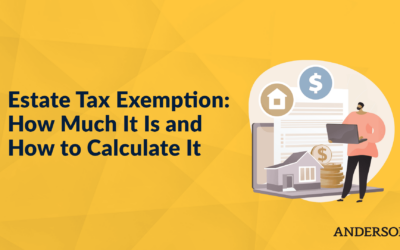Preparing an estate plan that outlines how your affairs will be handled after your death is an important step in protecting your assets from unwanted third parties after you have passed away. A living trust may be the right choice to save your family time and money once you’ve passed.
However, too many people neglect this step for a variety of reasons. Some people simply procrastinate, thinking that they’ll have time to prepare an estate plan at some later date. Others find the whole topic uncomfortable because it forces them to consider and accept their own mortality.
Either way, the failure to plan for your death can have a large impact on what happens to your assets after you die.
What is a Living Trust
A trust is an arrangement under which one person, called a trustee, holds legal title to property for another person, called a beneficiary. You can be the trustee of your own living trust, keeping full control over all property held in the trust.
A living trust, once signed, notarized, and funded, is a legally binding document that guarantees your plan for your estate will be executed as you wish. Revocable living trusts put you in control, not a judge or even a third party.
While the initial cost of a will is less than that of a living trust, the savings come after your passing. The national average cost of probate is 4% of the estate and, on average, takes 18 months from start to finish throughout a lengthy court proceeding.
Help your loved ones avoid these delays and costs while remaining in control of your estate during your lifetime by forming a revocable living trust with Anderson.
Tax & Asset Protection Workshop
Learn about Real Estate & Asset Protection at our next
FREE LIVE STREAM
How Does a Living Trust Work
With a living trust, the grantor (creator) of the trust will transfer the title of their property to a trustee. Most commonly, the grantor will serve as the initial trustee of their trust and will designate a successor trustee to take over once they’ve passed away.
The grantor will also designate beneficiaries of the trust who will receive distributions of the trust property, or otherwise receive the benefit of the trust property after the grantor dies.
The grantor has a great deal of flexibility to determine how the trust benefits are received by the beneficiaries. Some of the options that the grantor has are to have the trust beneficiaries’ shares retained by the trust and be distributed only for certain purposes or at certain times or ages.
The trust may retain the trust property and only distribute the income from the trust property to the beneficiaries, or the trust may make immediate distribution of the beneficiary’s shares directly to the beneficiaries.
Why Do I Need a Living Trust
Creating and funding a living trust ensures that your legacy will continue and that your wishes will be met after you die.
Not only can you direct how and to whom your property is distributed after your death, but you also have the opportunity to name a trusted person as your successor trustee to oversee the administration of your trust.
This trustee plays a large role in carrying out your wishes and can even help project your values in the distribution of your property to your beneficiaries.
Without a trust or some other type of estate plan, you leave the decisions of who receives your property and who oversees the administration of your property to the state.
Your heirs will also be left to try to navigate your state’s complicated probate court procedures to accomplish the administration of your estate.
This is a recipe for conflict and all too often leads to estate litigation. Thus, by failing to create a living trust, you may inadvertently be leaving your loved ones a legacy of conflict, hurt feelings, and fractured relationships.
The Difference Between a Living Trust and a Will for Estate Planning
The two mutually exclusive tools that are primarily used for estate and legacy planning are wills and living trusts.
Both of these documents allow you to direct who has the right to receive your assets after your death, how these assets are to be distributed, and often at least as important, who does not have a right to receive your assets after your death.
With the right drafting, these documents can also protect your assets, for a time at least, from your beneficiaries’ creditors. Additionally, both a will and a trust can help you plan for and minimize State and/or Federal estate taxes, commonly referred to as “death taxes.”
Thus, by preparing an estate plan, whether a will or a trust, you can potentially lower your estate taxes and ensure that your estate goes to the people or organizations that you want.
How to Settle Your Estate Outside of Probate
Where the living trust stands out from the will, however, is its ability to lower the administrative time, burden, and cost of your estate by allowing your estate to be settled outside of probate.
Probate is simply the court-supervised process through which an estate is administered and distributed after someone dies. Depending on your state and the size of your estate, probate can cost into the tens, or in some cases hundreds, of thousands of dollars or more in court costs, legal fees, personal representative fees, etc.
Additionally, probate is often a lengthy process that in many cases not only takes years to settle but also has significant privacy and anonymity consequences as the whole process becomes public record, including what assets you had at the time of your death and where those assets went.
A common misconception is that having a will allows an estate to avoid probate. In truth, however, only a living trust allows for the possibility of probate avoidance. Therefore, a trust has a distinct advantage over a will by protecting your estate from the costly legal fees and court costs associated with probate, thereby preserving more of your assets for your beneficiaries.
Protecting Assets After Your Death
In summary, preparing an estate plan, a living trust, in particular, allows you to protect your assets from third parties after your death by (1) preventing unwanted potential heirs from being able to successfully make a claim against your estate, (2) protecting your assets from your beneficiaries’ creditors, (3) enabling you to plan for and minimize estate taxes, and (4) avoiding the cost and burden of probate.
While some of these protections are available through a well-drafted will, only a living trust offers all of these protections. Thus, a living trust is a vitally important tool for protecting your assets after your death and should be part of any comprehensive asset protection strategy.
Free Strategy Session with an Anderson Advisor
Receive a detailed risk assessment to assist in lowering problem areas that could wipe out all of your assets with one wrong move. Speak with an Anderson Professional Advisor to get your FREE Strategy Session. Limited-Time offer: FREE (a $750 value.)
As always, take advantage of our free educational content. And every other Tuesday we have Toby’s Tax Tuesday, a great educational series. Our Structure Implementation Series answers your questions about how to structure your business entities to protect you and your assets.
Additional Resources:
- Claim your FREE Strategy Session, and learn how Anderson Advisors can protect your assets.
- Join our next Tax & Asset Protection event to learn more advanced tax minimization & entity structuring strategies
- For all things investing, check out the Infinity Investing YouTube channel
- Subscribe to our YouTube channel to make sure you never miss the latest strategies & updates















